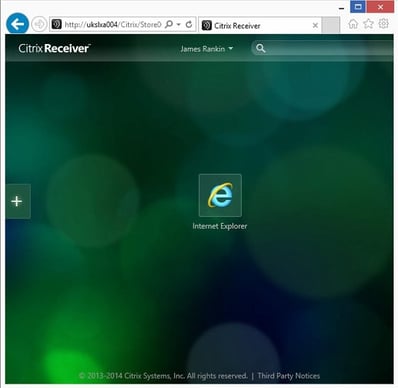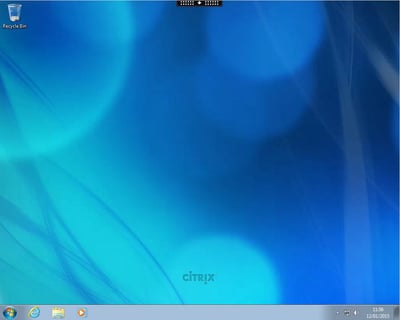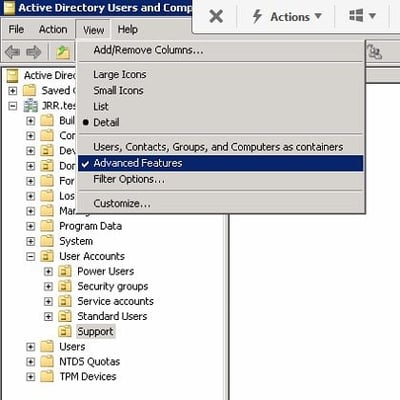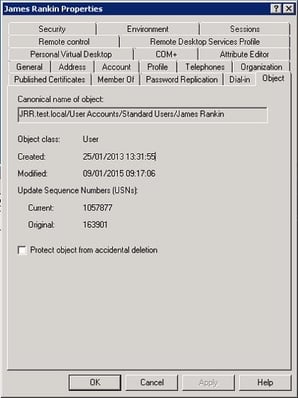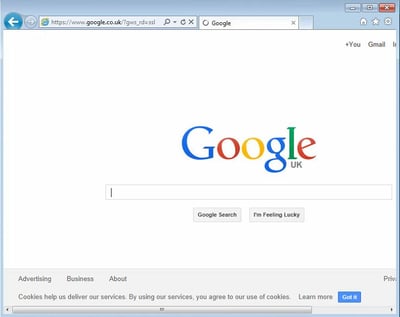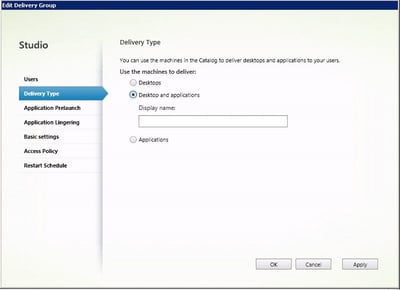This burns me on a semi-regular basis, so I’m going to write a quick blog post about it to save me digging the same solution up time and again. So hopefully it should also help some of you out there!
Issue
I’ve just built a new Citrix infrastructure (a XenApp 7.6 PoC, to be precise, running on Windows 2008 R2). I’ve created my machine catalog and my delivery groups, and integrated them with my StoreFront server (anyone who follows me on Twitter will know how much I hate StoreFront in comparison to Web Interface, so I won’t start ranting here).
I’ve published out an application for testing (in this case, Internet Explorer 9), and logged onto the StoreFront for Web. I can see my published application no problem when I log on to StoreFront
but when I go to launch it, this is what I see instead of my application
That isn’t a published application – that’s a full-fat published desktop. Very odd!
Resolution
Fortunately, I’ve come across this behaviour quite a few times before, so it won’t have me as stumped as the first time I saw it.
The answer is to do with the user properties in Active Directory. If a Windows 2003 FFL user is edited from a Windows 2008 or higher console, the userParameters attribute becomes corrupted. This piece of neat VBscript (apologies for no credit given – I can’t recall where I picked it up from, please let me know if it’s yours!) should do the trick as far as resolving it goes, naturally switching the CN (canonical name) for the CN of your affected user.
If you don’t know where to find the CN, first open the Active Directory Users and Computers snap-in (if you’re not a dinosaur like me, and use modern stuff like the Active Directory Administrative Center, sorry, you will have to find the way yourself) and enable the Advanced Features as below
Next, find your user having the issue, open up the Properties dialog, and switch to the Object tab
The CN is shown in the box in the centre.
The VBScript we need to use is shown below. You will need to modify it for the problem user using the CN.
So if we modified the script for the user details shown above, the script would look like this
Const ADS_PROPERTY_CLEAR = 1
Set objUser = GetObject _
(“LDAP://cn=James Rankin,ou=Standard Users,ou=User accounts,dc=JRR,dc=test,dc=local”)
objUser.PutEx ADS_PROPERTY_CLEAR, “userParameters”, 0
objUser.SetInfo
Save your modified file with a .vbs extension, and then run it from the command line using cscript (I’ve done it as an admin from the domain controller, but not sure whether that particularly matters
And let’s now log back on to the StoreFront web page and give my published application another go….
…as we can see it is all good now.
One quick note – you may also see this behaviour if you configure the type of delivery group for the application to be “Desktops and applications” as shown below and you’ve just got one application configured. The choice of delivery types is discussed nicely in this article by Bas van Kaam, rather than me go into it here.
There is one more possible solution I’ve come across, if those mentioned above don’t work for you:-
http://support.microsoft.com/kb/969851
Summary
So, just a quick article on a Citrix issue today, so that I don’t have to go digging next time I see this issue crop up. Hopefully as the world moves away from Windows Server 2003 it should become more and more scarce, but given that I had a query about a Windows 2000 desktop issue only yesterday, it may be relevant for a few years yet!

